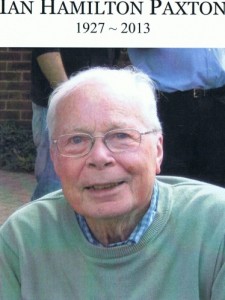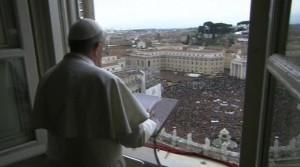Love and Truth go together – Pilate said to Jesus, “Truth! What is Truth!”
Posted by SociusMar 21
Yesterday, on my day off, I walked with a friend of mine along the banks of the River Mersey. The river was still, the sun was shining as we set off and the seagulls soared, played and scavenged, while we conversed about so many things, and walked.
 |
“Have you ever met anyone who, deliberately and truly, has cut himself off from God: in other words instead of trying to journey in God’s direction, quite deliberately goes in the other?” That was one question put to me. So it got my brain cells working, and honestly, I could not think who might be like that, among people I know. “Could anyone have the true idea of God that would make it possible to reject him?” Again my brain cells whirred and I could understand the point he was making; also, I could empathise, from an intellectual point of view. After all, I am told that when we say anything about God, what we say is far, far away from the actual reality of the divine Godhead we are trying to describe and, if that be the case, then it may be that silence is best before God. When one thinks about it, perhaps this summary is true! Perhaps, we would do well to listen to his silence!
But then another thought came to mind. St. John wrote: “How can you say you love the God you cannot see, if you do not love the neighbour that you do see?” (cf 1 John 4:20). Turn this on its head, and, if you discover a human being who hates and despises another, and actively does everything they can to destroy the physical, or moral well-being of that person, then …. what are the inevitable consequences? Would this not be a kind of atheism, at least? I could imagine a person who might even be a good ‘Church goer’, who behaves in such a way. Analysing the point a little deeper, it too, may well, from time to time, be ‘atheistic’ in that sense.
 |
All this brings me back to the need for change in our Church. A week ago last Monday I attended the funeral of an Anglican friend, in a country Church near Harrogate. He was 86 years old, and I have known Ian and his wife, Rosemary, for 40 years. I can personally testify that he was a generous Christian man. I wrote the following about Ian to friends last week. We like to share what God through his Word is doing in our lives:
“Ian was an amazingly good man, having been a Spitfire pilot after the war. He gave it all up, (though he loved it), because he felt that his pacifist tendencies were too strong, and he did not want to be involved in killing people. He was a structural engineer, also having studied at Cambridge, and became an innovative leader in the use of wood, in all sorts of buildings. He was one of the first Anglicans to know the Focolare and its spirit to promote unity. There are four children, and with their wives and children they all sang and spoke at the funeral. It was amazing. One section of the family sang an evangelical ditty called, ‘If you ask me how I know ….(Jesus)’, and it was quite beautiful, especially as the youngest child has Downs Syndrome; that little girl of about 4 years old touched everyone’s hearts when her mother put a small toy mandolin round her neck and she strummed enthusiastically. Her elder brothers and sisters sang beautifully together with their mum and dad (Ian’s Son). The words are very simple:
‘If you ask me, how I know there’s life beyond the grave,
I’ll tell you, Jesus rose again, victorious to save.
He came to me, He lives in me, He fills my heart with love.
I know Him as my living friend, who leads me on to Heaven above,
who leads me on to Heaven above.’
Ian was also an apostle of unity. The vicar together with the Reverend Simon Hoare, an old friend of Ian and indeed of myself conducted the ceremony which proved to be a little bit of heaven; very well done, indeed. I felt, in a new way, the beauty of the Anglican Church, and how it is, in its own way, the presence of God, for many people. Although there was no Holy Communion, it impressed as a very sincere and touching service. I think we should praise God for these prophetic moments, when we get an insight both into heaven, and how the Church on earth, might be one day.”
In writing about this experience, I am reminded of the story Pope Francis recounted at his first address to the massive crowds of 300,000 last Sunday in St. Peter’s square.
 |
Pope Francis Addresses the Crowd in St. Peter’s Square
He spoke of an elderly widow, he encountered during a Mass for the Sick, celebrated in connection with a visit of the image of Our Lady of Fatima.
“I went to confession during the Mass, and near the end – I had to go to do confirmations afterward, an elderly lady approached me – humble [she was] so very humble, more than eighty years old. I looked at her, and said, ‘Grandmother,’ – where I come from, we call elderly people grandmother and grandfather – ‘would you like to make your confession?’ ‘Yes,’ she said – and I said, ‘but, if you have not sinned…’ and she said, ‘we all have sinned.’ [I replied], ‘if perhaps He should not forgive [you]?’ and, with great certainty she replied, ‘The Lord forgives everything.’ I asked, ‘How do you know this for sure, madam?’ and she replied, ‘If the Lord hadn’t forgiven all, then the world wouldn’t [still] be here.’ And, I wanted to ask her, ‘Madam, did you study at the Gregorian (the Pontifical Gregorian University, founded in 1551 by St. Ignatius Loyola, the oldest Jesuit university in the world)?’ – because that is wisdom, which the Holy Spirit gives – interior wisdom regarding the mercy of God. Let us not forget this word: God never tires of forgiving us, but we sometimes tire of asking Him to forgive us. Let us never tire of asking God’s forgiveness.”
My prayer is that we, as Catholics, can shake off any sense of superiority over others; that we can learn to be more flexible, remembering that ‘ritual is for man’, not ‘man for ritual’; that we can be open to the simple wisdom of ordinary people, many of whom are not religious in the ordinary sense of the word, and that we never forget the poor. Of course, we remain thankful to God for all the great tradition of our Catholic Church, but the way we have lived out our Catholic Faith, at least in Britain, often has not been pitched at the level of ordinary people, and we forget that it is not much use going to Church, Sunday by Sunday, and having no influence on the local community in which we live. That too, might be a kind of atheism, as would Catholics, whether they be Cardinals, Bishops, Priests, Sisters or lay people, who live lives not in accordance with the Gospel.
Father Jonathan

No comments